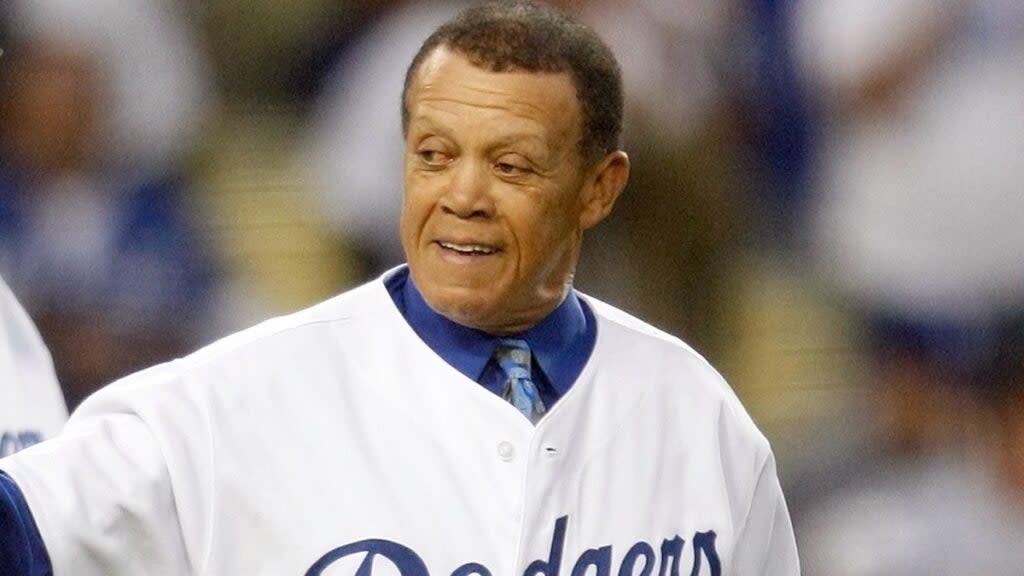Maury Wills, Base-Stealing Machine for Los Angeles Dodgers’ World Series Teams, Dies at 89

- Oops!Something went wrong.Please try again later.
- Oops!Something went wrong.Please try again later.
Maurice Morning “Maury” Wills, the speedy, switch-hitting shortstop for the Los Angeles Dodgers’ World Series championship teams of the 1960s who revived the stolen base as a key component of baseball strategy, has died. The seven-time All-Star was 89.
The team announced Wills’ death Tuesday on Twitter. He died at his home in Arizona on Monday, but no cause was given.
The Los Angeles Dodgers are saddened by the passing of Dodger legend Maury Wills. Our thoughts are with Wills’ family, teammates and friends. pic.twitter.com/zCtmuSUB0o
— Los Angeles Dodgers (@Dodgers) September 20, 2022
Wills was called up to the Dodgers from the minor leagues midseason in 1959, playing all six games in their World Series victory that year. The following year, he hit .295 and led the league with 50 stolen bases in his first full season.
In 1962, Wills stole 104 bases to set a new MLB record – though his mark was set with an “asterisk,” as previous record-holder Ty Cobb’s 96 steals came during a 154-game season (with the league expanded to 162 games, Wills’ 97th stolen base came after his team’ 154th game).
His modern-era record would be eclipsed in 1974 by Lou Brock (118), and again in 1982 by Rickey Henderson (130). With 586, Wills’ career stolen bases currently rank 20th in all of baseball.
Also Read:
Vin Scully Celebrated by Hollywood, Sports World: ‘Nobody Ever Told the Story of Baseball Better’
Though he excelled at stealing to the degree that teams began reconsidering speed as a key offensive component, Wills was an all-around player who won Golden Glove awards an was selected to play in seven All-Star games.
He had brief stints with the Pittsburgh Pirates and Motreal Expos, but returned to Los Angeles to finish out his career. He had a brief and undistinguished career as a manager of the Seattle Mariners, going 26-56 overall – one of the worst records ever recorded by a full-time skipper.
But his greatest love outside of baseball was playing music; he spent much of his free time pursuing singing and playing the banjo, and was considered quite prolific on the instrument. At one time he operated and performed at his own music night club in Pittsburgh.
He is survived by a son, Bump Wills, who played for the Texas Rangers and Chicago Cubs for six seasons.

